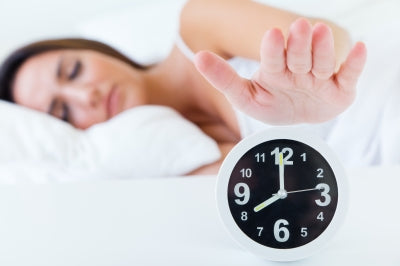Experiencing migraine can really ruin your day. The searing pain that it causes leaves you mentally and physically impaired. It can bring your life to a screeching halt and keep you from doing the things you enjoy like spending time with family and friends.
Sadly, waking up with a migraine is not that uncommon. Migraine and severe headaches can kick in first thing in the morning, stopping you in your tracks as you look at a very painful day stretching before you.
While the medical field hasn’t yet found a definite cause for migraine, various clinical studies suggest that particular triggers like certain foods, alcohol, and lifestyle choices, can increase your chances of getting a migraine. When you encounter any of these triggering factors, your chances are good that you’ll start your day with a dreary migraine.
Are your mornings being welcomed by severe headache? These following factors might have triggered it.
Irregular Sleep Patterns
Your morning migraine could be caused by poor sleeping habits. People who don’t have a regular sleep schedule are more susceptible to migraine and headaches than those who get good sleep on a consistent basis.
Needless to say, getting an adequate amount of sleep (for adults, that’s an average of 7 to 9 hours a night) can help you minimize your chances of a migraine attack meaning you are less likely to find yourself waking up with a migraine. After all, good quality sleep offers healing and rejuvenating effects to your entire body. It also boosts your immune system, which translates to fewer sick days.
Sleep deprivation as well as excessive sleeping have the same negative consequences. One of which is it lowers your resistance to pain and illnesses. Finding a good sleep balance is important.
Insomnia
Insomnia is one of the more prevalent sleep disorders on a global scale. It is estimated that one out of three individuals today has a problem falling asleep or staying asleep. Unfortunately, insomnia can lead to other health issues as well such as chronic pain, emotional disorders, and even cancer.
A person with insomnia only sleeps around four to six hours every day. This is below the seven to nine hours a night that sleep experts recommend. In addition to the potential health risks and exhausted feeling, lack of sleep can also be a risk factor for headaches and migraine. The frequency of your migraine can increase exponentially if you don’t sleep or if you are troubled with depression and anxiety attacks.
There are various ways you can counter insomnia. One of these is the use of specially designed pillows. They have ergonomic properties that provide support and comfort to your body allowing you to sleep more comfortably.

Stress
Stress is one of the most common trigger factors for migraine. Excessive weariness and anxiety double the chances that you will become emotionally and physically sick. It is interesting to note that many people who suffer from stress are also often sleep deprived.
Even if there are no sleeping difficulties, the manifestation of stress can still trigger a migraine. People who are under a great deal of stress are more likely to suffer from migraine and tension headaches than those who are more relaxed, have better management or coping skills, or who have lower stress levels.
Stress is caused by numerous factors: Over-working, emotional problems, and living or working in a toxic environment are some of the prevalent causes.
Caffeine
Drinking caffeine before bedtime or even in the afternoon can leave you waking up with a migraine. People tend to drink too much coffee because it acts as a natural stimulant. Those who have hectic schedules tend to binge on the substance because they feel it gives them the boost of energy they need to get things done. It is short lived, though. After the caffeine hits its peak, there is the inevitable crash that follows.
However, the consequences of excessive caffeine consumption should not be ignored. Individuals who drink a lot of coffee (more than two cups a day, although some people are triggered by ingesting much less) are more prone to migraine. Specifically, studies show that chronic headache can be a direct result of your dependence on coffee. Drinking it too late in the day can leave you waking up with a migraine.
The next time you head out to the nearest cafe, ask yourself: do I really need to drink a coffee? If the answer is no, then you may want to consider a healthier option like water, milk, or caffeine free herbal teas. These help keep you hydrated and may even help you sleep.

Dehydration
Surprisingly, keeping yourself well hydrated can actually help you avoid the harrowing effects of a migraine. When you are dehydrated you greatly increase your susceptibility to a migraine. This is commonly referred to as “a dehydration headache” and happens when you don’t provide your body with enough fluid. You can’t go wrong with the 8×8 rule. That’s eight 8 ounce glasses of water a day.
Your system requires sufficient fluid in order to function at an optimal level. When you don’t have enough water in your body, your brain actually shrinks! It is so important that you drink enough water every day. If you find that you are waking up with a migraine despite getting good sleep, try drinking some water to see if the pain eases. Even low-level dehydration can be a migraine trigger.
So how much water is “enough”? The Food and Nutrition Board recommends that water consumption from beverages and food for women should be 2.7 liters a day and for men, 3.7 liters a day. While about 80% of water consumption comes from beverages, about 20% comes from the food you eat, so that should be taken into consideration when you are monitoring your water intake.
You Can Prevent Migraine
Waking up with a migraine is no fun. It can make you feel weak and put a definite halt to your daily routine. Migraine can also cause you to cancel planned activities and trips, and prevent you from just living your life. If morning migraines are a common occurrence, you need to take preventive measures to ensure that you don’t find yourself reeling from the pain first thing in the morning.
If you can’t shake the migraine, it happens frequently, or if you find it is getting progressively worse, you should talk to your doctor or a headache specialist. They may be able to prescribe medications that will help keep you from waking up with a migraine.
For questions and suggestions, feel free to drop them in the comment section below.

My name is Layla Parker, the founder and chief editor of ASleepyWolf.com. I decided to start taking my blog about sleep seriously to help people find what they need to experience better sleep and maintain their health. Do check out my website to learn more how to improve it now!






